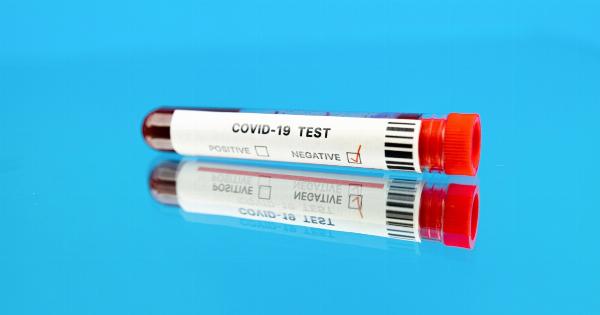Testicular cancer is a rare type of cancer that develops in the testicles or testes, which are the male reproductive organs responsible for producing sperm and testosterone.
The most common symptom of testicular cancer is a painless lump or swelling in one of the testicles. However, not all cases of testicular cancer present with these symptoms. Sometimes, men may not notice any signs until the cancer has spread to other parts of the body.
Therefore, early detection and diagnosis of testicular cancer is crucial for effective treatment and cure.
On the other hand, pregnancy tests are used by women to confirm pregnancy by detecting the presence of human chorionic gonadotropin (hCG), a hormone that is produced during pregnancy.
But can a pregnancy test detect testicular cancer? Let’s explore this question in more detail.
What is a pregnancy test?
A pregnancy test is a test that determines whether a woman is pregnant or not by detecting the presence of hCG in her urine or blood. hCG is produced by the placenta after a fertilized egg implants itself in the uterus.
Urine pregnancy tests can be done at home using a urine sample and over-the-counter kits that are available at drug stores. Blood pregnancy tests are performed by healthcare professionals and are more accurate than urine tests.
Can a pregnancy test detect testicular cancer?
No, a pregnancy test cannot detect testicular cancer. Pregnancy tests are designed to detect hCG, a hormone that is only produced during pregnancy.
Testicular cancer is a type of cancer that originates in the testicles and is not associated with hCG production. Therefore, a pregnancy test will not be able to confirm or rule out testicular cancer.
How is testicular cancer diagnosed?
Testicular cancer is typically diagnosed through a combination of physical exams, medical history review, blood tests, and imaging tests, such as ultrasound and magnetic resonance imaging (MRI).
A biopsy may also be performed to determine the type of cancer and the stage of the disease.
What are the risk factors for testicular cancer?
There are several risk factors that increase the likelihood of developing testicular cancer, including:.
- Age: Testicular cancer is most frequently diagnosed in men between the ages of 20 and 34.
- Family history: Men with a family history of testicular cancer have an increased risk of developing the disease.
- Previous testicular cancer: Men who have had testicular cancer in one testicle are at increased risk of developing it in the other testicle.
- Undescended testicle: Men who have a testicle that did not move down into the scrotum during fetal development have an increased risk of developing testicular cancer.
- Abnormal testicle development: Conditions that affect testicle development, such as Klinefelter syndrome, may increase the risk of testicular cancer.
What are the symptoms of testicular cancer?
The most common symptom of testicular cancer is a painless lump or swelling in one of the testicles. Other symptoms may include:.
- Heaviness or aching in the lower abdomen, groin, or scrotum
- Pain or discomfort in a testicle or the scrotum
- A sudden buildup of fluid in the scrotum
- Enlargement or tenderness of the breasts
It is important to note that not all men with testicular cancer will experience these symptoms. Some men may not have any symptoms until the cancer has spread to other parts of the body.
Conclusion
While a pregnancy test is an effective tool for detecting pregnancy, it cannot be used to detect testicular cancer. Testicular cancer is a rare but serious disease that can be effectively treated if detected early.
Men should perform regular self-exams and report any abnormalities to their healthcare provider.





























